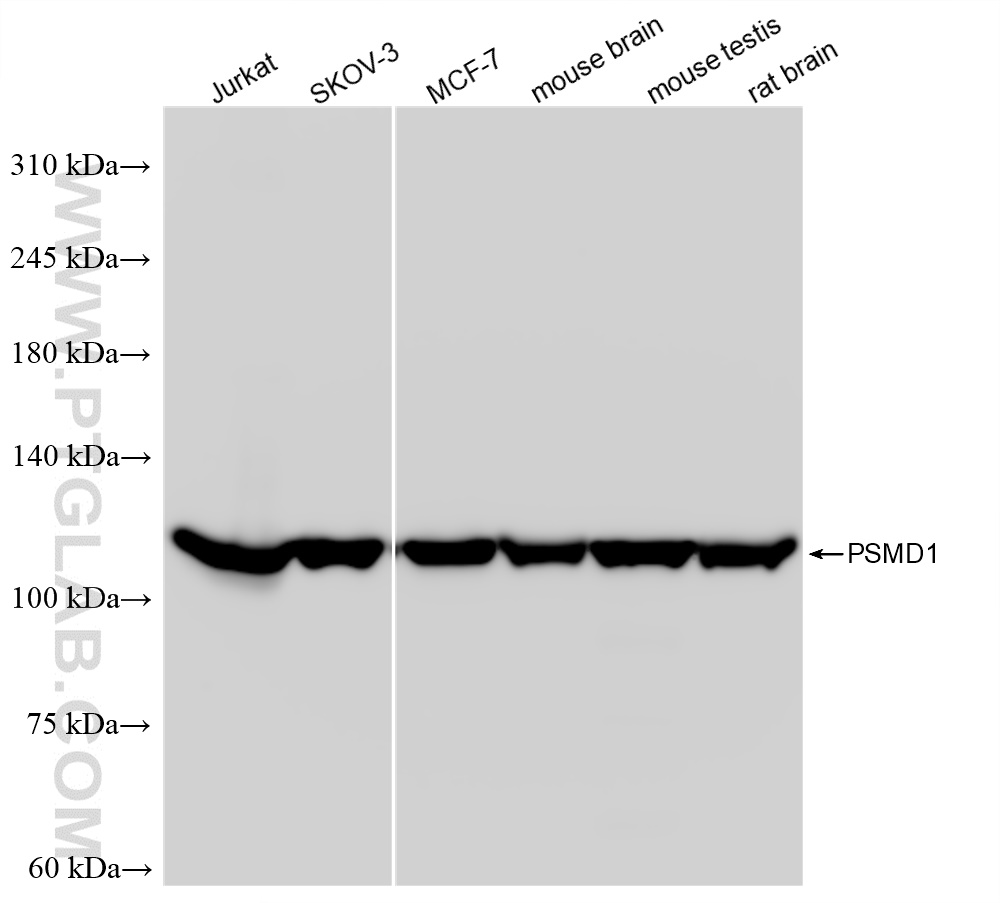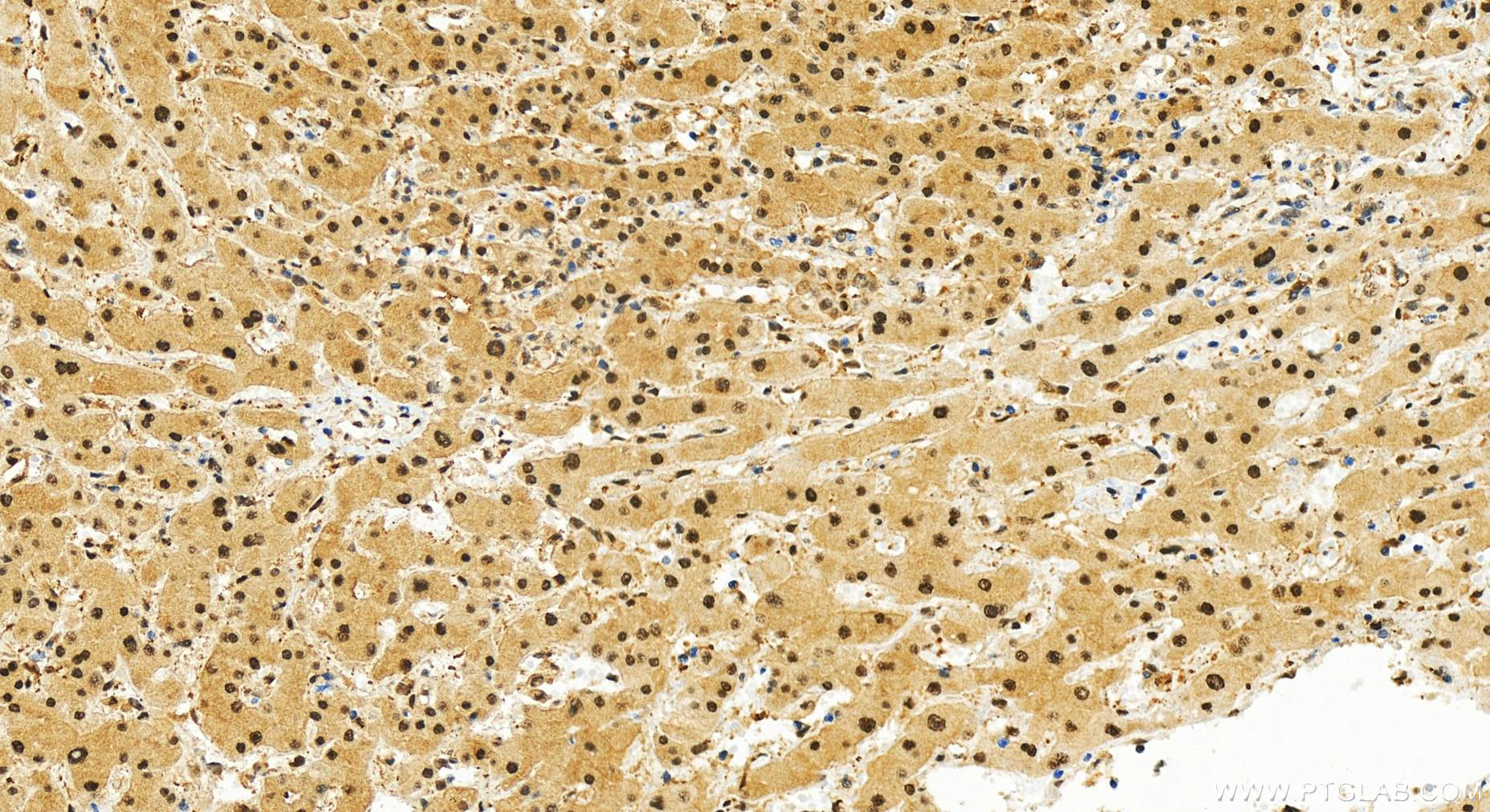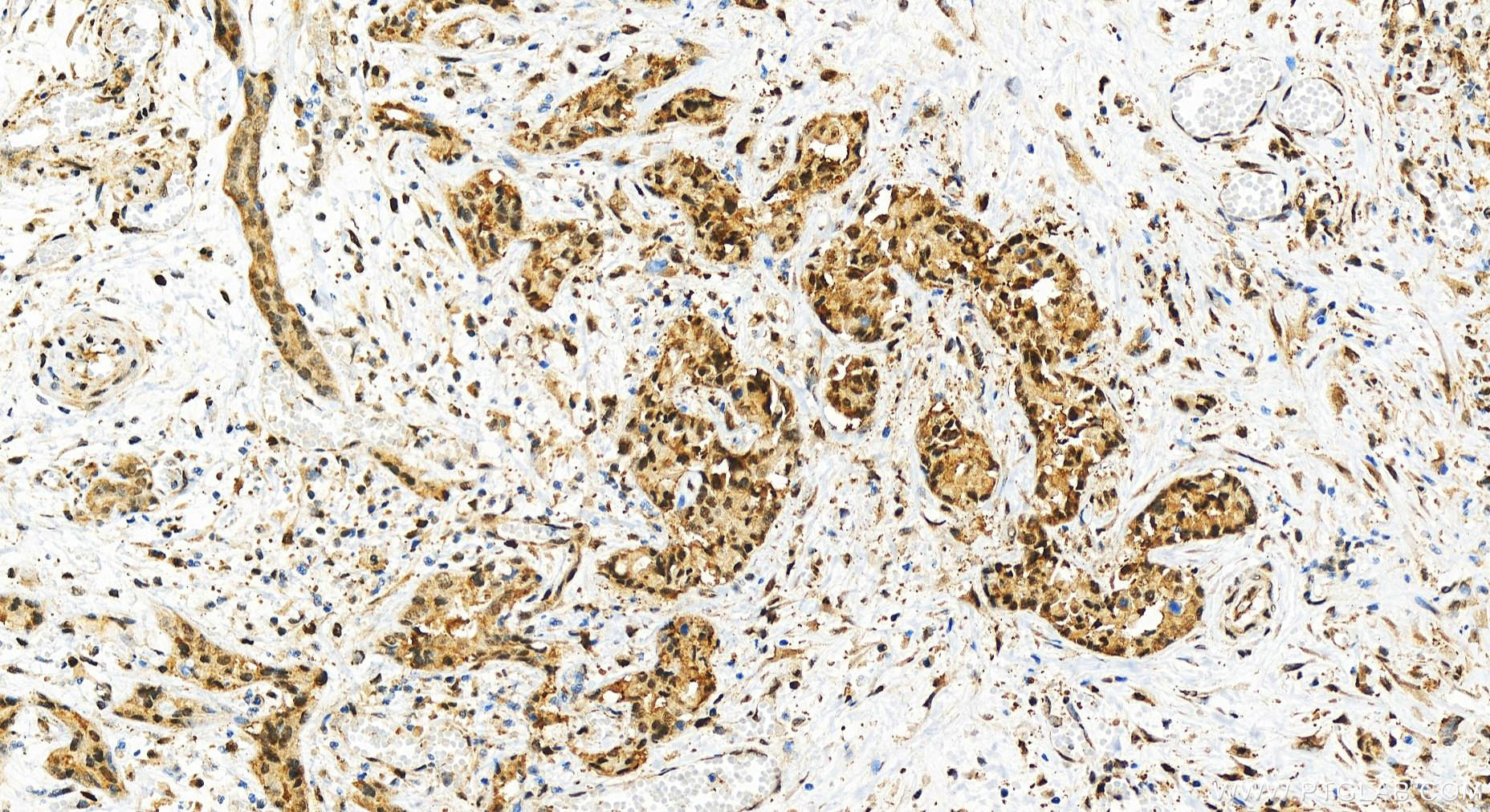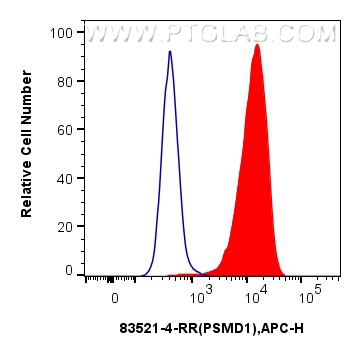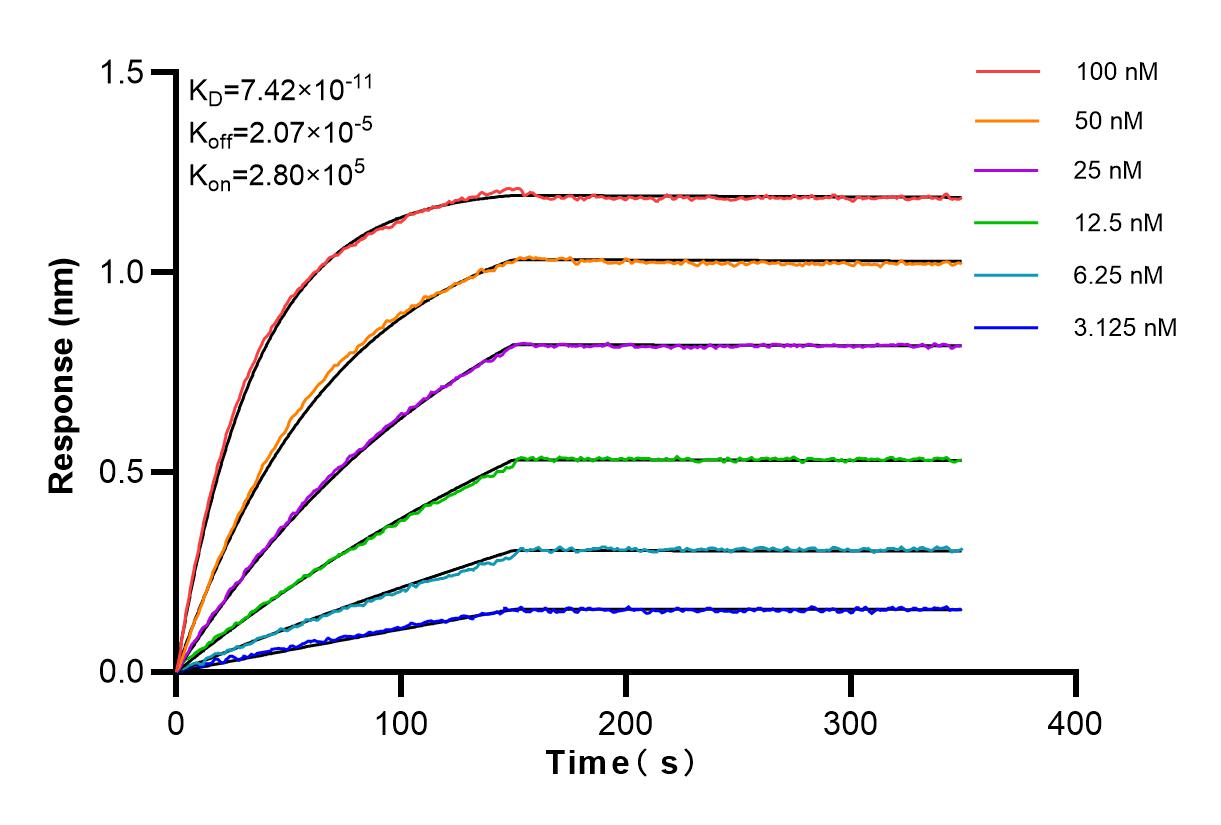验证数据展示
产品信息
83521-4-PBS targets PSMD1 as part of a matched antibody pair:
MP00519-2: 83521-3-PBS capture and 83521-4-PBS detection (validated in Cytometric bead array)
Unconjugated rabbit recombinant monoclonal antibody in PBS only (BSA and azide free) storage buffer at a concentration of 1 mg/mL, ready for conjugation. Created using Proteintech’s proprietary in-house recombinant technology. Recombinant production enables unrivalled batch-to-batch consistency, easy scale-up, and future security of supply.
This conjugation ready format makes antibodies ideal for use in many applications including: ELISAs, multiplex assays requiring matched pairs, mass cytometry, and multiplex imaging applications.Antibody use should be optimized by the end user for each application and assay.
| 经测试应用 | WB, IHC, IF/ICC, FC (Intra), Cytometric bead array, Indirect ELISA Application Description |
| 经测试反应性 | human, mouse, rat |
| 免疫原 | PSMD1 fusion protein Ag12009 种属同源性预测 |
| 宿主/亚型 | Rabbit / IgG |
| 抗体类别 | Recombinant |
| 产品类型 | Antibody |
| 全称 | proteasome (prosome, macropain) 26S subunit, non-ATPase, 1 |
| 别名 | PSMD 1, 26S proteasome non-ATPase regulatory subunit 1, 240458C9 |
| 计算分子量 | 953 aa, 106 kDa |
| 观测分子量 | 106 kDa |
| GenBank蛋白编号 | BC094720 |
| 基因名称 | PSMD1 |
| Gene ID (NCBI) | 5707 |
| 偶联类型 | Unconjugated |
| 形式 | Liquid |
| 纯化方式 | Protein A purification |
| UNIPROT ID | Q99460 |
| 储存缓冲液 | PBS only , pH 7.3 |
| 储存条件 | Store at -80°C. The product is shipped with ice packs. Upon receipt, store it immediately at -80°C |
背景介绍
PSMD1 is a component of the 26S proteasome and contributes to its function regulation. PSMD1 performs an important role in the regulation of numerous cellular processes through the degradation of proteins targeted for breakdown through ubiquitin. PSMD1 has been found to be closely related to a variety of cancers such as lung adenocarcinoma and breast cancer.
